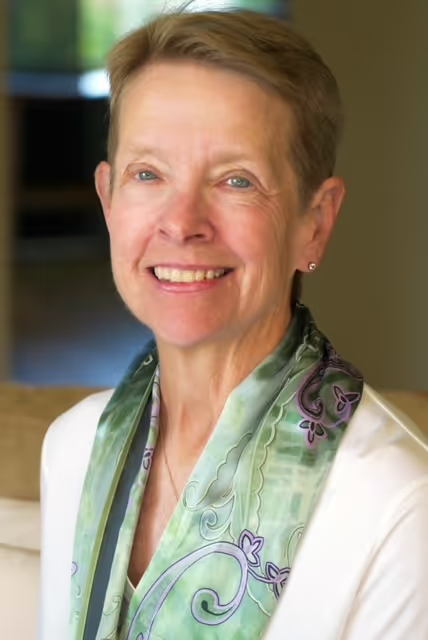"We’ve been told several times there's no roadmap for where we're going..."
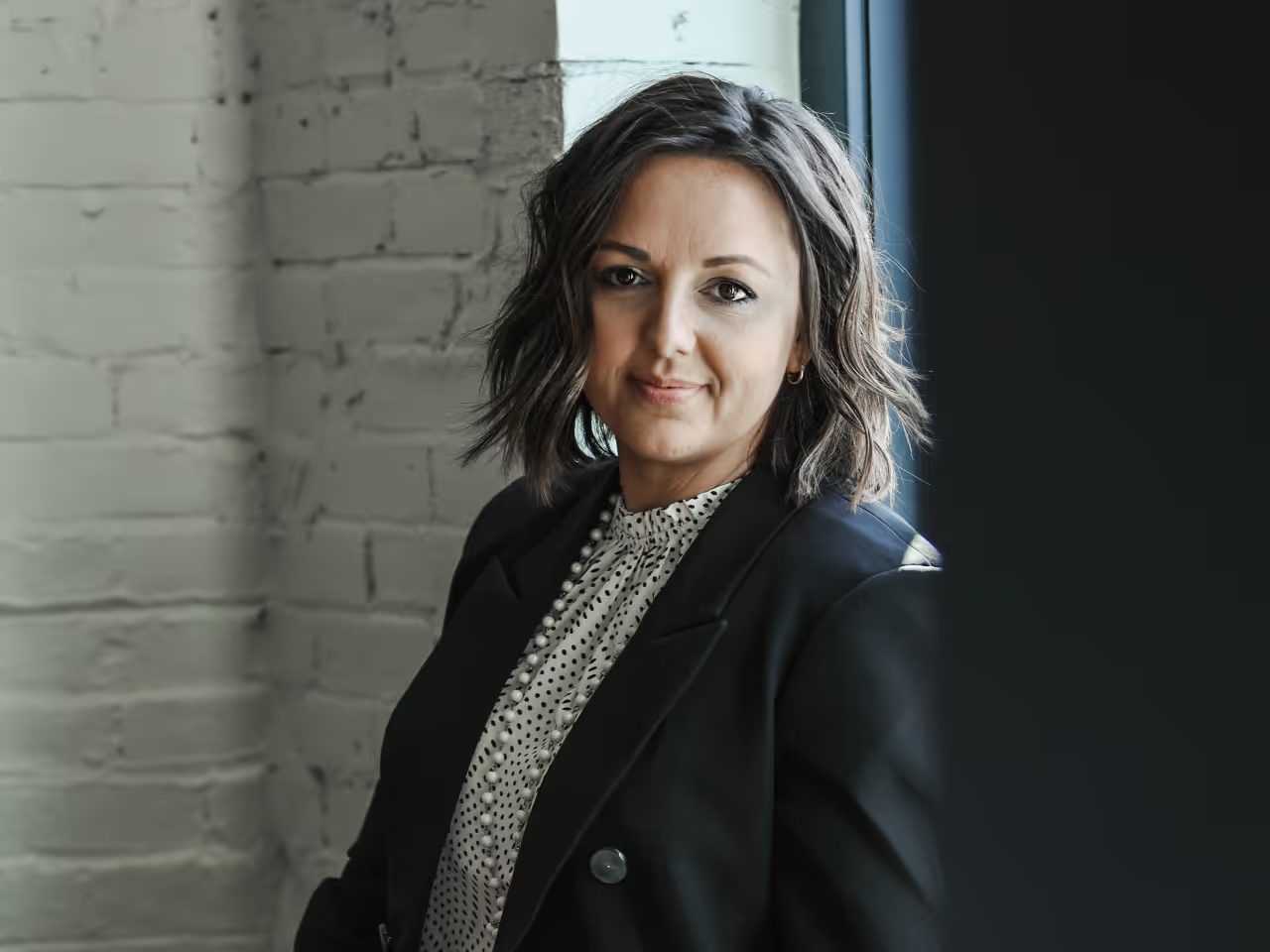
“We’ve been told several times there's no roadmap for where we're going. Brady is only the 65th documented case in the world thus far with this particular mutation. Yes, it's leukemia, but the way it mutates is just different. It’s very aggressive and fast-moving when it comes. There's just not a lot of knowledge about it yet.
At the beginning, traditional chemo didn’t work, so we moved to an immunotherapy, which finally put Brady into remission. Then he needed a bone marrow transplant. Blake, his fraternal twin brother, was a perfect match. We knew he would give Brady the best chance at survival. But Blake is deathly afraid of needles. So he was trying to wrestle with that fear, along with the fear of knowing that his brother’s life hinged on him saying yes. It was just a lot for him, as a nine year old, to emotionally work through.
We wanted it to be Blake’s choice. We never wanted to force it on him. He eventually said, “I’m gonna do it. I’m gonna be Brady’s bone marrow donor, because if Brady can be as strong as he is to get through all of this, then I can be brave and strong to do this for him.” But then came another difficult conversation, where I had to explain to Blake that even though he was a perfect match, it wasn’t guaranteed that the transplant would be successful. Brady could still die, so Blake needed to know that if that happened, it wasn’t his fault. We had multiple conversations to make sure he understood that…which I’m so glad we did, because Brady relapsed just 6 months after his transplant. If we hadn’t found the clinical trial, Brady most likely would not have survived. That would have been really hard for Blake to reconcile with for the rest of his life.
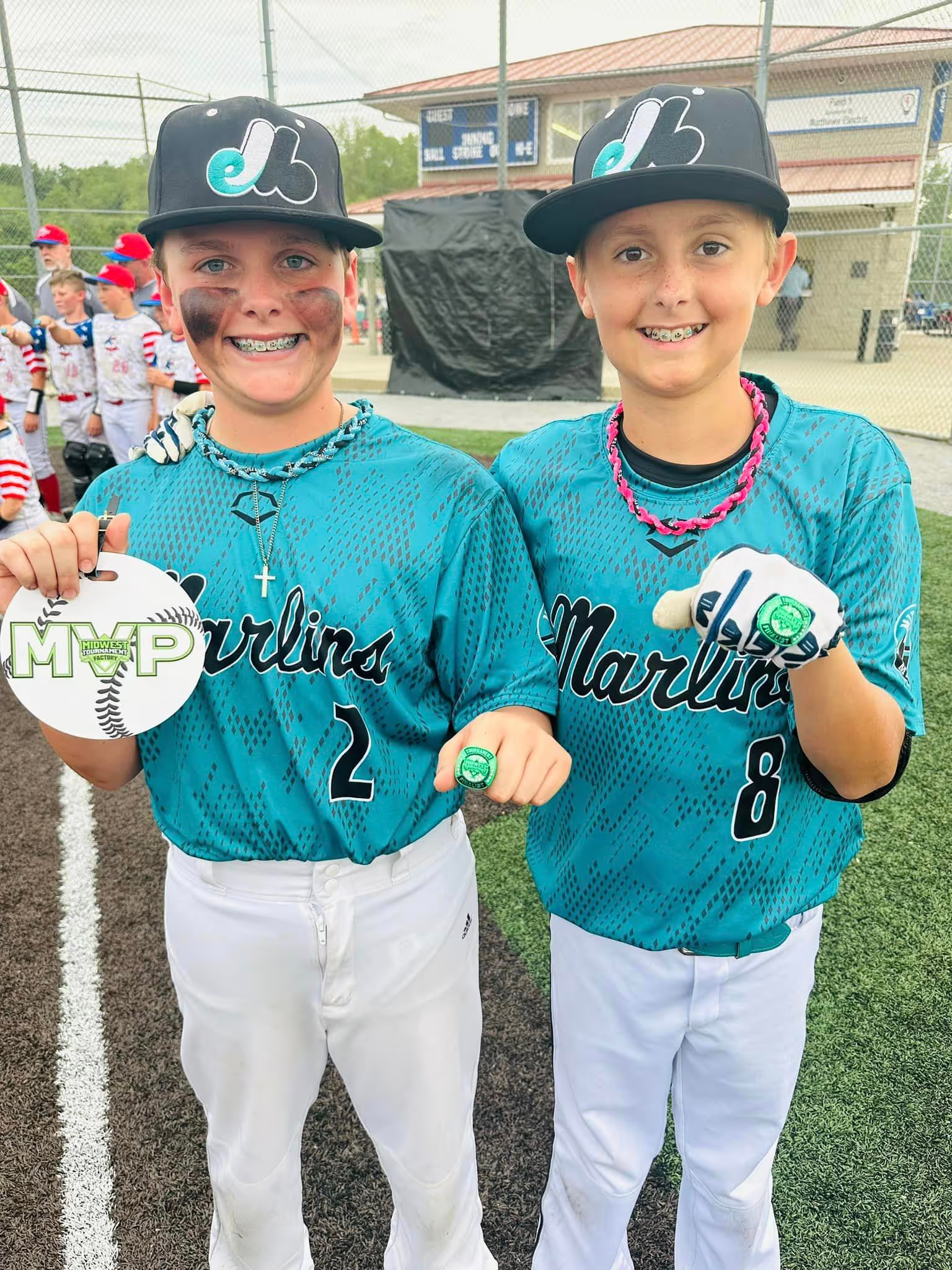
When Brady relapsed, the doctors were considering another bone marrow transplant. But he barely survived the first one - he was hospitalized in the PICU with septic shock from a bladder infection and heart problems - so the last thing we were going to do was put him through another.
We started to look outside the box, and that's when we found Children's Hospital of Philadelphia and their clinical trial for CAR-T therapy. Brady turned out to be a perfect candidate for their HuCAR-T trial. “How soon can you get him here?” they asked. We’ve been on this journey almost five months now, and he’s doing great. He was able to finish the entire school year in person, play with his club soccer team this spring, and is right in the middle of the season with his travel baseball team. It’s honestly just absolutely incredible to witness.
The research team in Philadelphia is incredible. I really believe they are changing the face of how we treat cancer, especially pediatric cancer. They know their cases inside and out and the results of the trial have been staggering. If they can take a case as horrendous as Brady's - where there is so little chance of long term success and remission - and get these kids healthy and cancer free, without all of the toxic stuff that can come from traditional treatments…it’s just absolutely incredible. The long-term survival rate has always been less than 5 or 10% for Brady. But if he makes it to his appointment in June cancer free, I think he’s got an 86% long-term survival rate. We never, ever experienced results like this.
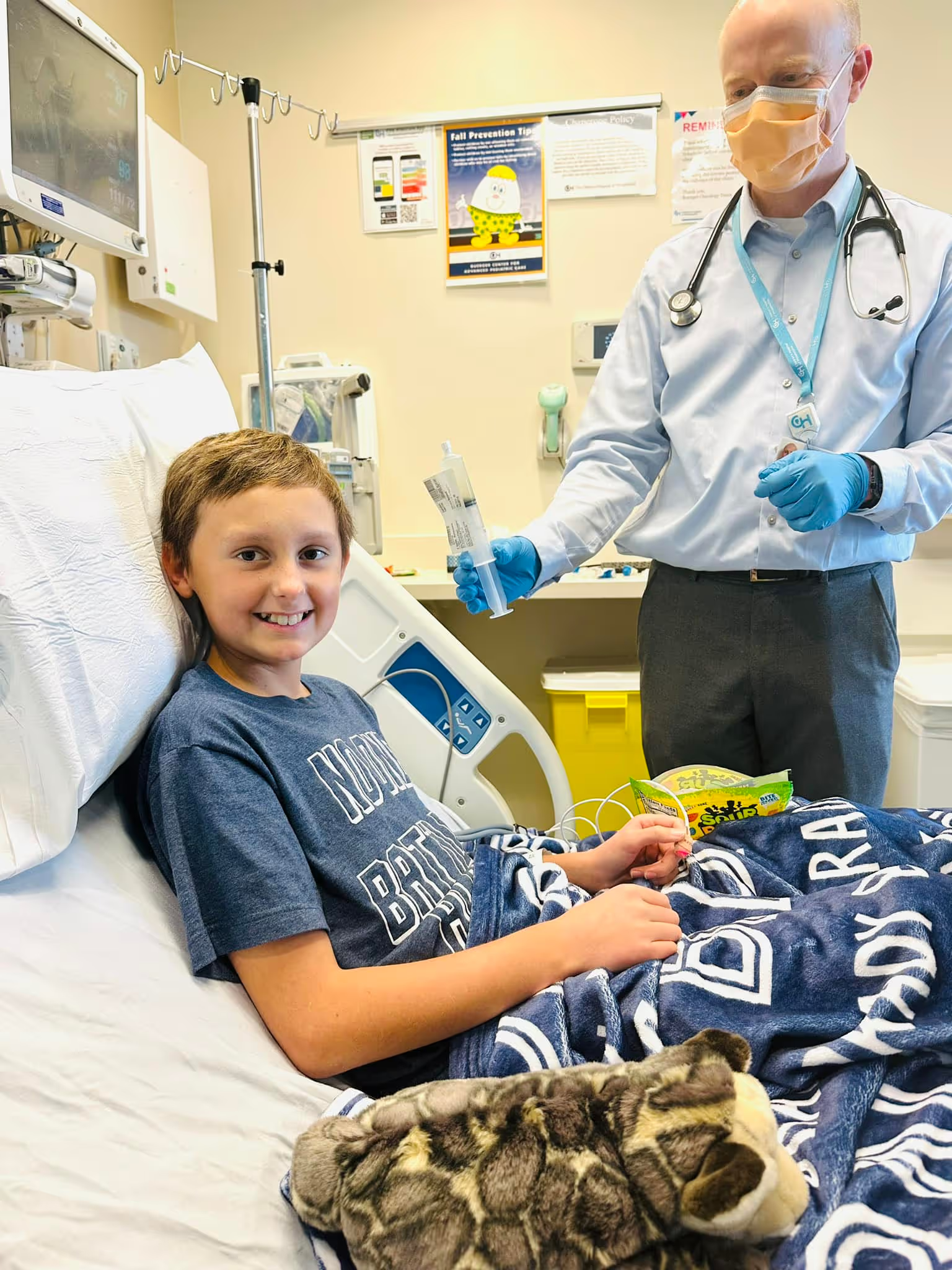
You still have bad days though. Days where you feel all the emotions. One night, I was cleaning up in the kitchen after Brady had gotten really sick from treatment. I could see my daughter, Aubrey, standing in the doorway. And you can just instantly tell when your kid’s demeanor is off. I said sis, what’s going on? You okay? She was quiet, but then asked, is Brady going to die tonight? These are the conversations we have. I know their hearts are hurting. They’ll see Brady receive such generous gifts, like autographs from professional sports players, because people really rally behind kids with cancer, but siblings…they don’t receive things like that. So now through our nonprofit, we’re able to shine light on other areas of struggle that aren’t always seen.
We have a very strong faith foundation, so from the beginning, we saw the hospital as a mission field. Brady would go to the gift shop to get stuffed animals and just wander the hospital lobby giving them out. One day I thought, what if this was a thing that we did? So we came up with this idea of “Battle Pups” and named our nonprofit “Way to Battle,” a phrase often used in baseball. We carry all different breeds of stuffed dogs, and we say they’ve been “armed with strength” to help them through whatever battle they are facing. And they’re not just for the kids who are sick, but for their siblings and families who are struggling, too. We’ve sent them all over the world. Whether it’s a friend who is grieving the loss of a loved one, a child who suffers from anxiety during tests, a parent battling an illness…those battles are no different than my son’s battle with cancer. All struggles are real and valid. And we want people to know that you don’t have to go through it alone.
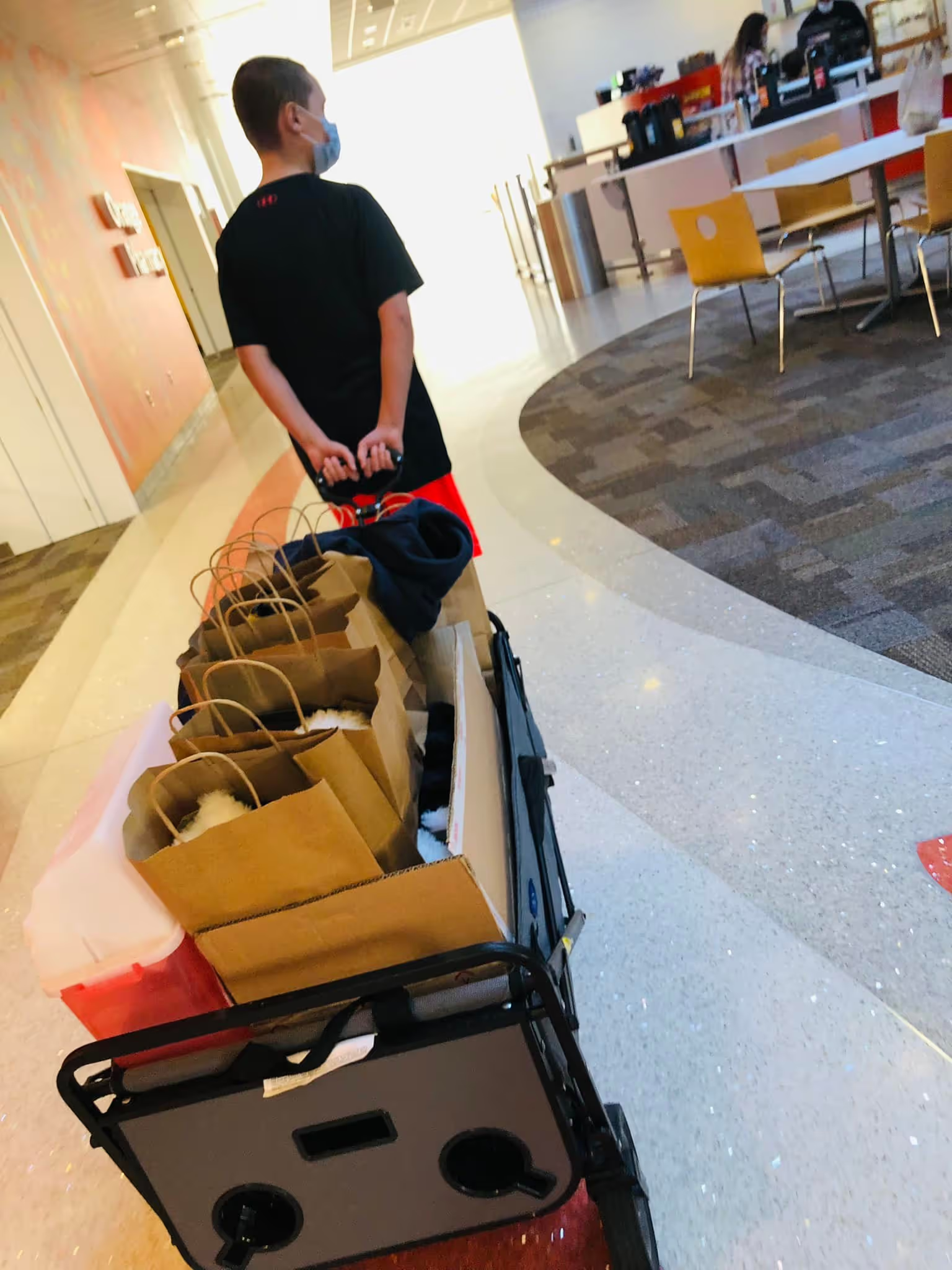
In October of 2021, our goal was to send out 200 Battle pups by the end of that year. We’re now 18 months into this and have already surpassed 10,000. The way we’re affecting lives, it really feels like we’re changing the world. We’ve turned the tables on all of this.
We don’t know what the future holds. We don't know if Brady's number of years on earth will be 10, 20, or 40. Brady could relapse in the next 30 days and not be with us in 60 days. We just don’t know. And in the same way, I don’t know if I’m going to get in a car accident on my way home. That’s the harsh reality people don’t like to talk about. But it’s the truth. Would I grieve? Be heartbroken? Be angry that I felt robbed of time with him? Absolutely. Those are all fair and valid things. But the difference for us is in our faith. We know this isn’t the end of our story.
“We’ve been told several times there's no roadmap for where we're going. Brady is only the 65th documented case in the world thus far with this particular mutation. Yes, it's leukemia, but the way it mutates is just different. It’s very aggressive and fast-moving when it comes. There's just not a lot of knowledge about it yet.
At the beginning, traditional chemo didn’t work, so we moved to an immunotherapy, which finally put Brady into remission. Then he needed a bone marrow transplant. Blake, his fraternal twin brother, was a perfect match. We knew he would give Brady the best chance at survival. But Blake is deathly afraid of needles. So he was trying to wrestle with that fear, along with the fear of knowing that his brother’s life hinged on him saying yes. It was just a lot for him, as a nine year old, to emotionally work through.
We wanted it to be Blake’s choice. We never wanted to force it on him. He eventually said, “I’m gonna do it. I’m gonna be Brady’s bone marrow donor, because if Brady can be as strong as he is to get through all of this, then I can be brave and strong to do this for him.” But then came another difficult conversation, where I had to explain to Blake that even though he was a perfect match, it wasn’t guaranteed that the transplant would be successful. Brady could still die, so Blake needed to know that if that happened, it wasn’t his fault. We had multiple conversations to make sure he understood that…which I’m so glad we did, because Brady relapsed just 6 months after his transplant. If we hadn’t found the clinical trial, Brady most likely would not have survived. That would have been really hard for Blake to reconcile with for the rest of his life.

When Brady relapsed, the doctors were considering another bone marrow transplant. But he barely survived the first one - he was hospitalized in the PICU with septic shock from a bladder infection and heart problems - so the last thing we were going to do was put him through another.
We started to look outside the box, and that's when we found Children's Hospital of Philadelphia and their clinical trial for CAR-T therapy. Brady turned out to be a perfect candidate for their HuCAR-T trial. “How soon can you get him here?” they asked. We’ve been on this journey almost five months now, and he’s doing great. He was able to finish the entire school year in person, play with his club soccer team this spring, and is right in the middle of the season with his travel baseball team. It’s honestly just absolutely incredible to witness.
The research team in Philadelphia is incredible. I really believe they are changing the face of how we treat cancer, especially pediatric cancer. They know their cases inside and out and the results of the trial have been staggering. If they can take a case as horrendous as Brady's - where there is so little chance of long term success and remission - and get these kids healthy and cancer free, without all of the toxic stuff that can come from traditional treatments…it’s just absolutely incredible. The long-term survival rate has always been less than 5 or 10% for Brady. But if he makes it to his appointment in June cancer free, I think he’s got an 86% long-term survival rate. We never, ever experienced results like this.

You still have bad days though. Days where you feel all the emotions. One night, I was cleaning up in the kitchen after Brady had gotten really sick from treatment. I could see my daughter, Aubrey, standing in the doorway. And you can just instantly tell when your kid’s demeanor is off. I said sis, what’s going on? You okay? She was quiet, but then asked, is Brady going to die tonight? These are the conversations we have. I know their hearts are hurting. They’ll see Brady receive such generous gifts, like autographs from professional sports players, because people really rally behind kids with cancer, but siblings…they don’t receive things like that. So now through our nonprofit, we’re able to shine light on other areas of struggle that aren’t always seen.
We have a very strong faith foundation, so from the beginning, we saw the hospital as a mission field. Brady would go to the gift shop to get stuffed animals and just wander the hospital lobby giving them out. One day I thought, what if this was a thing that we did? So we came up with this idea of “Battle Pups” and named our nonprofit “Way to Battle,” a phrase often used in baseball. We carry all different breeds of stuffed dogs, and we say they’ve been “armed with strength” to help them through whatever battle they are facing. And they’re not just for the kids who are sick, but for their siblings and families who are struggling, too. We’ve sent them all over the world. Whether it’s a friend who is grieving the loss of a loved one, a child who suffers from anxiety during tests, a parent battling an illness…those battles are no different than my son’s battle with cancer. All struggles are real and valid. And we want people to know that you don’t have to go through it alone.

In October of 2021, our goal was to send out 200 Battle pups by the end of that year. We’re now 18 months into this and have already surpassed 10,000. The way we’re affecting lives, it really feels like we’re changing the world. We’ve turned the tables on all of this.
We don’t know what the future holds. We don't know if Brady's number of years on earth will be 10, 20, or 40. Brady could relapse in the next 30 days and not be with us in 60 days. We just don’t know. And in the same way, I don’t know if I’m going to get in a car accident on my way home. That’s the harsh reality people don’t like to talk about. But it’s the truth. Would I grieve? Be heartbroken? Be angry that I felt robbed of time with him? Absolutely. Those are all fair and valid things. But the difference for us is in our faith. We know this isn’t the end of our story.
“We’ve been told several times there's no roadmap for where we're going. Brady is only the 65th documented case in the world thus far with this particular mutation. Yes, it's leukemia, but the way it mutates is just different. It’s very aggressive and fast-moving when it comes. There's just not a lot of knowledge about it yet.
At the beginning, traditional chemo didn’t work, so we moved to an immunotherapy, which finally put Brady into remission. Then he needed a bone marrow transplant. Blake, his fraternal twin brother, was a perfect match. We knew he would give Brady the best chance at survival. But Blake is deathly afraid of needles. So he was trying to wrestle with that fear, along with the fear of knowing that his brother’s life hinged on him saying yes. It was just a lot for him, as a nine year old, to emotionally work through.
We wanted it to be Blake’s choice. We never wanted to force it on him. He eventually said, “I’m gonna do it. I’m gonna be Brady’s bone marrow donor, because if Brady can be as strong as he is to get through all of this, then I can be brave and strong to do this for him.” But then came another difficult conversation, where I had to explain to Blake that even though he was a perfect match, it wasn’t guaranteed that the transplant would be successful. Brady could still die, so Blake needed to know that if that happened, it wasn’t his fault. We had multiple conversations to make sure he understood that…which I’m so glad we did, because Brady relapsed just 6 months after his transplant. If we hadn’t found the clinical trial, Brady most likely would not have survived. That would have been really hard for Blake to reconcile with for the rest of his life.

When Brady relapsed, the doctors were considering another bone marrow transplant. But he barely survived the first one - he was hospitalized in the PICU with septic shock from a bladder infection and heart problems - so the last thing we were going to do was put him through another.
We started to look outside the box, and that's when we found Children's Hospital of Philadelphia and their clinical trial for CAR-T therapy. Brady turned out to be a perfect candidate for their HuCAR-T trial. “How soon can you get him here?” they asked. We’ve been on this journey almost five months now, and he’s doing great. He was able to finish the entire school year in person, play with his club soccer team this spring, and is right in the middle of the season with his travel baseball team. It’s honestly just absolutely incredible to witness.
The research team in Philadelphia is incredible. I really believe they are changing the face of how we treat cancer, especially pediatric cancer. They know their cases inside and out and the results of the trial have been staggering. If they can take a case as horrendous as Brady's - where there is so little chance of long term success and remission - and get these kids healthy and cancer free, without all of the toxic stuff that can come from traditional treatments…it’s just absolutely incredible. The long-term survival rate has always been less than 5 or 10% for Brady. But if he makes it to his appointment in June cancer free, I think he’s got an 86% long-term survival rate. We never, ever experienced results like this.

You still have bad days though. Days where you feel all the emotions. One night, I was cleaning up in the kitchen after Brady had gotten really sick from treatment. I could see my daughter, Aubrey, standing in the doorway. And you can just instantly tell when your kid’s demeanor is off. I said sis, what’s going on? You okay? She was quiet, but then asked, is Brady going to die tonight? These are the conversations we have. I know their hearts are hurting. They’ll see Brady receive such generous gifts, like autographs from professional sports players, because people really rally behind kids with cancer, but siblings…they don’t receive things like that. So now through our nonprofit, we’re able to shine light on other areas of struggle that aren’t always seen.
We have a very strong faith foundation, so from the beginning, we saw the hospital as a mission field. Brady would go to the gift shop to get stuffed animals and just wander the hospital lobby giving them out. One day I thought, what if this was a thing that we did? So we came up with this idea of “Battle Pups” and named our nonprofit “Way to Battle,” a phrase often used in baseball. We carry all different breeds of stuffed dogs, and we say they’ve been “armed with strength” to help them through whatever battle they are facing. And they’re not just for the kids who are sick, but for their siblings and families who are struggling, too. We’ve sent them all over the world. Whether it’s a friend who is grieving the loss of a loved one, a child who suffers from anxiety during tests, a parent battling an illness…those battles are no different than my son’s battle with cancer. All struggles are real and valid. And we want people to know that you don’t have to go through it alone.

In October of 2021, our goal was to send out 200 Battle pups by the end of that year. We’re now 18 months into this and have already surpassed 10,000. The way we’re affecting lives, it really feels like we’re changing the world. We’ve turned the tables on all of this.
We don’t know what the future holds. We don't know if Brady's number of years on earth will be 10, 20, or 40. Brady could relapse in the next 30 days and not be with us in 60 days. We just don’t know. And in the same way, I don’t know if I’m going to get in a car accident on my way home. That’s the harsh reality people don’t like to talk about. But it’s the truth. Would I grieve? Be heartbroken? Be angry that I felt robbed of time with him? Absolutely. Those are all fair and valid things. But the difference for us is in our faith. We know this isn’t the end of our story.
“We’ve been told several times there's no roadmap for where we're going. Brady is only the 65th documented case in the world thus far with this particular mutation. Yes, it's leukemia, but the way it mutates is just different. It’s very aggressive and fast-moving when it comes. There's just not a lot of knowledge about it yet.
At the beginning, traditional chemo didn’t work, so we moved to an immunotherapy, which finally put Brady into remission. Then he needed a bone marrow transplant. Blake, his fraternal twin brother, was a perfect match. We knew he would give Brady the best chance at survival. But Blake is deathly afraid of needles. So he was trying to wrestle with that fear, along with the fear of knowing that his brother’s life hinged on him saying yes. It was just a lot for him, as a nine year old, to emotionally work through.
We wanted it to be Blake’s choice. We never wanted to force it on him. He eventually said, “I’m gonna do it. I’m gonna be Brady’s bone marrow donor, because if Brady can be as strong as he is to get through all of this, then I can be brave and strong to do this for him.” But then came another difficult conversation, where I had to explain to Blake that even though he was a perfect match, it wasn’t guaranteed that the transplant would be successful. Brady could still die, so Blake needed to know that if that happened, it wasn’t his fault. We had multiple conversations to make sure he understood that…which I’m so glad we did, because Brady relapsed just 6 months after his transplant. If we hadn’t found the clinical trial, Brady most likely would not have survived. That would have been really hard for Blake to reconcile with for the rest of his life.

When Brady relapsed, the doctors were considering another bone marrow transplant. But he barely survived the first one - he was hospitalized in the PICU with septic shock from a bladder infection and heart problems - so the last thing we were going to do was put him through another.
We started to look outside the box, and that's when we found Children's Hospital of Philadelphia and their clinical trial for CAR-T therapy. Brady turned out to be a perfect candidate for their HuCAR-T trial. “How soon can you get him here?” they asked. We’ve been on this journey almost five months now, and he’s doing great. He was able to finish the entire school year in person, play with his club soccer team this spring, and is right in the middle of the season with his travel baseball team. It’s honestly just absolutely incredible to witness.
The research team in Philadelphia is incredible. I really believe they are changing the face of how we treat cancer, especially pediatric cancer. They know their cases inside and out and the results of the trial have been staggering. If they can take a case as horrendous as Brady's - where there is so little chance of long term success and remission - and get these kids healthy and cancer free, without all of the toxic stuff that can come from traditional treatments…it’s just absolutely incredible. The long-term survival rate has always been less than 5 or 10% for Brady. But if he makes it to his appointment in June cancer free, I think he’s got an 86% long-term survival rate. We never, ever experienced results like this.

You still have bad days though. Days where you feel all the emotions. One night, I was cleaning up in the kitchen after Brady had gotten really sick from treatment. I could see my daughter, Aubrey, standing in the doorway. And you can just instantly tell when your kid’s demeanor is off. I said sis, what’s going on? You okay? She was quiet, but then asked, is Brady going to die tonight? These are the conversations we have. I know their hearts are hurting. They’ll see Brady receive such generous gifts, like autographs from professional sports players, because people really rally behind kids with cancer, but siblings…they don’t receive things like that. So now through our nonprofit, we’re able to shine light on other areas of struggle that aren’t always seen.
We have a very strong faith foundation, so from the beginning, we saw the hospital as a mission field. Brady would go to the gift shop to get stuffed animals and just wander the hospital lobby giving them out. One day I thought, what if this was a thing that we did? So we came up with this idea of “Battle Pups” and named our nonprofit “Way to Battle,” a phrase often used in baseball. We carry all different breeds of stuffed dogs, and we say they’ve been “armed with strength” to help them through whatever battle they are facing. And they’re not just for the kids who are sick, but for their siblings and families who are struggling, too. We’ve sent them all over the world. Whether it’s a friend who is grieving the loss of a loved one, a child who suffers from anxiety during tests, a parent battling an illness…those battles are no different than my son’s battle with cancer. All struggles are real and valid. And we want people to know that you don’t have to go through it alone.

In October of 2021, our goal was to send out 200 Battle pups by the end of that year. We’re now 18 months into this and have already surpassed 10,000. The way we’re affecting lives, it really feels like we’re changing the world. We’ve turned the tables on all of this.
We don’t know what the future holds. We don't know if Brady's number of years on earth will be 10, 20, or 40. Brady could relapse in the next 30 days and not be with us in 60 days. We just don’t know. And in the same way, I don’t know if I’m going to get in a car accident on my way home. That’s the harsh reality people don’t like to talk about. But it’s the truth. Would I grieve? Be heartbroken? Be angry that I felt robbed of time with him? Absolutely. Those are all fair and valid things. But the difference for us is in our faith. We know this isn’t the end of our story.
Allow people to be seen. Let them know you haven’t forgotten about them. When you have cancer - especially kids - there are so many things you miss out on. So just check in. Offer them a meal. Tell them you’re thinking about them. Something to ease the burden because there’s so much mental weight that goes into this. It feels fantastic when someone does something, even if it’s really simple.
I also cannot stress enough the importance of going with your gut and advocating for your child. Medical professionals of course went to school for many, many years, but the truth is, they’re understaffed, overworked, and exhausted. Be kind and patient, but also know it’s okay to respectfully question things. The thing that makes me so heartbroken is that many aren’t equipped to do this, though…whether there’s a language barrier, they are intimidated, or they come from a background where it’s not okay to question things. But it’s okay to ask for a second opinion. It's okay to question the medications they're taking. Ask things like, What is your success rate? How many cases have you treated like my kids, here at this hospital? What’s your game plan if it’s not successful?
Representation Matters
Increasing diversity in clinical trials builds trust, promotes health equity, and leads to more effective treatments and better outcomes (NEJM). But there is much work to be done - and barriers to break - to improve awareness and access for all people.
Do you know someone who is a member of a marginalized community who has participated in a clinical trial? If so, we’d love to meet them and share their story. We hope to represent the many faces of clinical trials through this project, and inspire others by shining a light on their experience.
They can contact us here.

